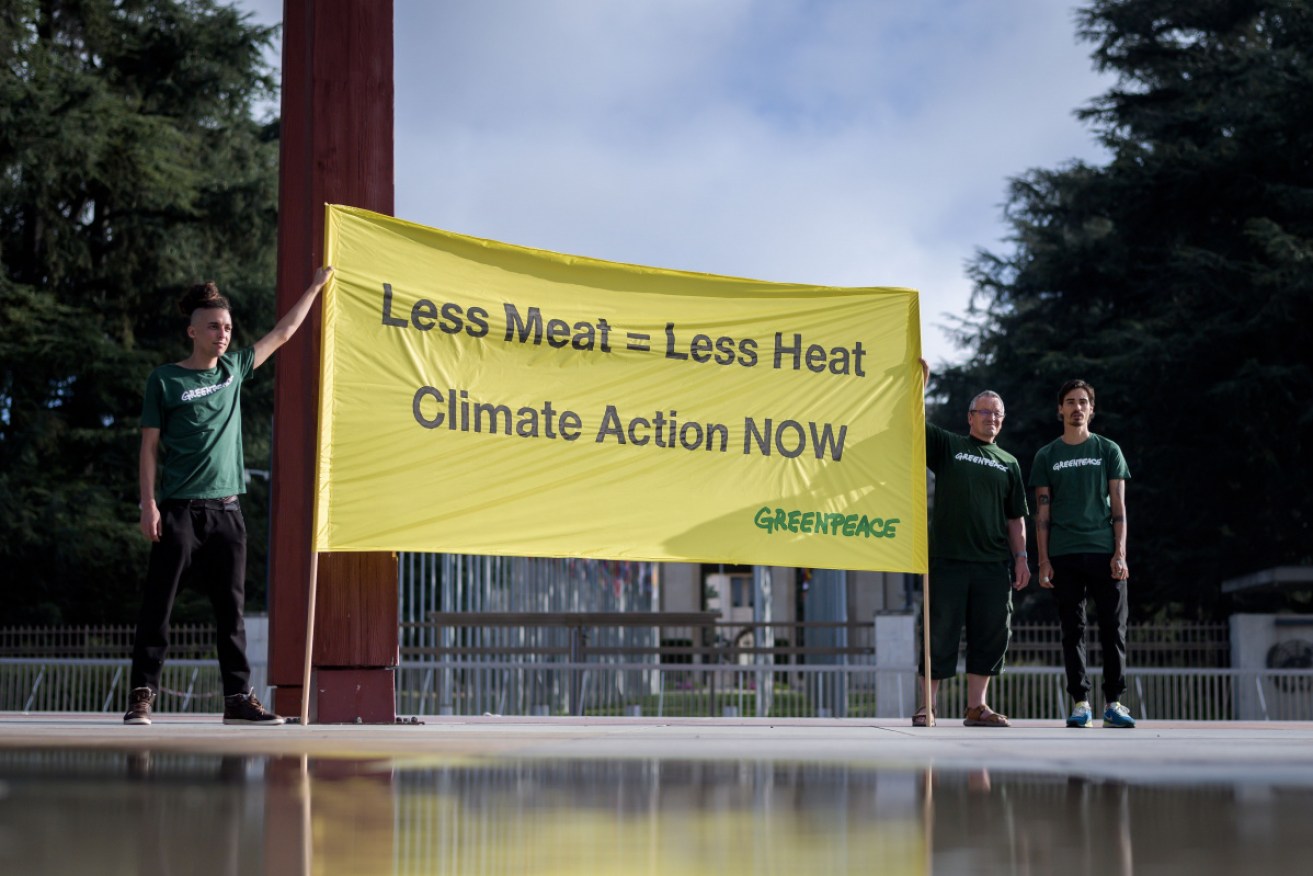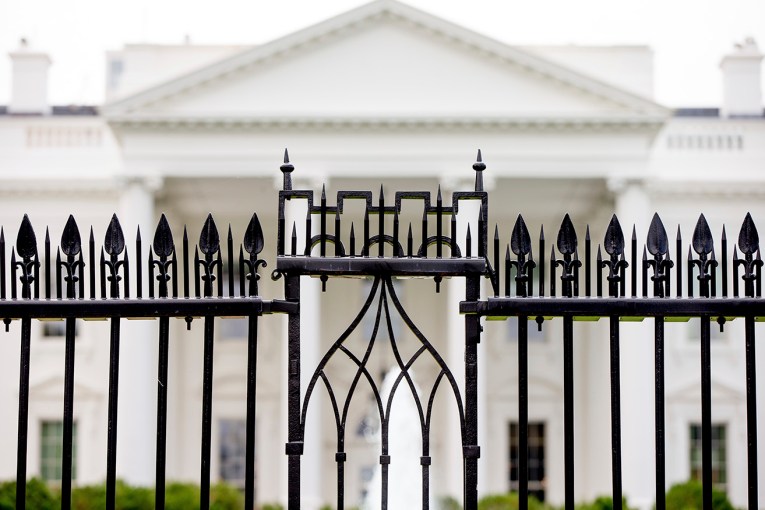Eat less meat: IPCC report calls for new diets to curb global warming


Greenpeace activists protest in Geneva before the release of the IPCC report on climate change and land on Thursday. Photo: AFP/Getty
Humans must urgently eat less meat in exchange for more grains, legumes, fruit and vegetables in the face of rapid climate change, a new report warns.
Adopting clean energy, transport and industry will not be enough to curb carbon emissions – we also need to rethink our eating habits and change the way we use the land to grow food.
A report by the United Nations’ Intergovernmental Panel on Climate Change (IPCC) released on Thursday says we need to take immediate action to dramatically improve land management, reforestation and soil regeneration if we are to avoid dangerous warming beyond 1.5 degrees Celsius.
One of the ways we can help is by changing our diet.
As it stands, the agriculture industry uses up about 70 per cent of the world’s fresh water, and raising livestock on a mass scale is a big part of the problem.
It takes roughly 6900 litres of water to produce just one pound of beef, and about 2180 litres of water to produce one pound of pork.
Growing soybeans, meanwhile, requires just 817 litres of water, and corn needs only 408 litres.
As part of restructuring our land use to make it more sustainable, the report says we must change our diet to include less meat and more fruit and vegetables, more coarse grains such as oats and barley, and more legumes like chickpeas and lentils.
🌍 IPCC Special Report on Climate Change and Land:
Land is under growing human pressure.
Land is a part of the solution.
But land can’t do it all. #SRCCL #ClimateChange #GlobalGoalsRead more ➡️ https://t.co/J1SszBYBjS pic.twitter.com/nQgAvJkzEh
— IPCC (@IPCC_CH) August 8, 2019
IPCC vice chair and director of the ANU Climate Change Institute Mark Howden said global warming was rapidly increasing existing threats to land that will make it harder to produce enough food to feed everyone around the world.
One third of food produced around the world is already lost or wasted, an outcome which is linked to increased greenhouse gas emissions.
“We ignore the interactions between climate change and the land at our peril,” Professor Howden said.
“If left unchecked, the current situation threatens to make climate change worse, and leave the world hungry and with increasingly damaged ecosystems.
“This report confirms the world has a double-edged sword hanging over its head.”
The report also notes big changes in our eating habits over the years, which has led to two billion adults being overweight or obese while an estimated 821 million people are still undernourished.
IPCC’s Debra Roberts said “some dietary choices require more land and water, and cause more emissions of heat-trapping gases than others”.
“Balanced diets featuring plant-based foods … present major opportunities for adaptation to and limiting climate change,” Dr Roberts said.
Agriculture, forestry and land use account for close to a quarter of total emissions from 2007 to 2016, the report says.
Changing our diet will help prevent land degradation while reducing the risk of soil erosion on land used for growing crops.

IPCC chairman Hoesung Lee says humanity faces increasingly painful trade-offs between food security and rising temperatures within decades. Photo: Getty
The IPCC is a UN body set up to assess science related to climate change, providing the information to governments to help shape climate policy.
More than 100 experts from 52 countries prepared the latest report, drawing on work from 96 authors.
Emissions from agricultural production are projected to increase, propelled by population and income growth, and changes in consumption patterns.
Advocacy group Farmers for Climate Action says the red meat sector has an ambitious target to be carbon neutral by 2030, with farmers hoping for a rapid transition to clean energy.
Christian Aid’s global climate lead Katherine Kramer has described the report as a clarion call to improve land management for people, nature and the climate.
“There are many opportunities to create win-wins in the ways we use the land, but it’s vital we implement these quickly to avoid having to make bleak choices between feeding people and reducing emissions,” Dr Kramer said.
-with AAP








